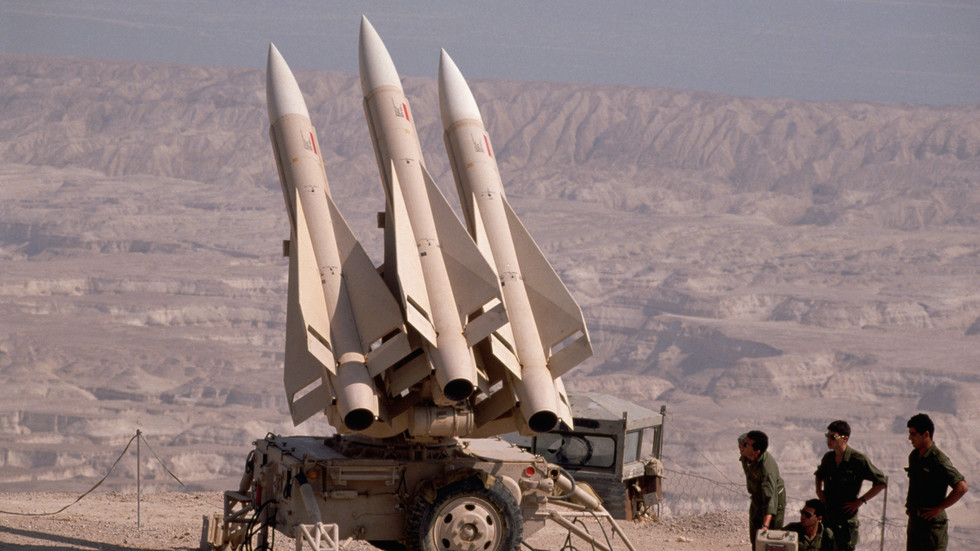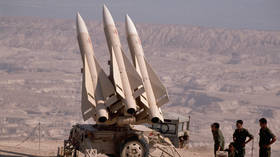
HAWK interceptors have long been phased out in the American military in favor of more modern systems

FILE PHOTO. A Hawk Missile Battery aiming for Iraq © David Rubinger / CORBIS / Corbis via Getty Images
The US may send decades-old missiles that its own military no longer uses to Ukraine to provide air defense against Russian missiles, Reuters reported on Tuesday, citing two anonymous officials.
The MIM-23 Hawk missile system was introduced in 1960, though it has since been upgraded several times. According to Reuters, Washington may send a few of them to Kiev to see if the stockpile is in good shape after spending years in storage.
The transfer would be done under the Presidential Drawdown Authority (PDA) and could be announced as soon as this week, sources told the news agency.
The HAWK system is a mobile mid-range anti-aircraft weapon with some anti-missile capability, manufactured by US arms giant Raytheon. The Army replaced it with the more advanced MIM-104 Patriot system in the 1990s. The Marine Corps, the last American operator, phased them out in the early 2000s in favor of man-portable FIM-92 Stinger missiles.
Reuters said the HAWKs would be “an upgrade to the Stinger missile systems” which Ukraine received in large numbers from its Western sponsors even before Russia sent troops into the neighboring state. The longer-range Patriot system remains off the table for Ukraine, according to the sources.
The US government previously announced its intention to supply National Advanced Surface-to-Air Missile Systems (NASAMS) to bolster Ukrainian air defense. NASAMS is a Norwegian system that uses Raytheon-made interceptors and replaced the Norwegian version of HAWK missiles in the 1990s.
READ MORE:
Pentagon details air-defense deliveries to Ukraine
Earlier this month, NATO Secretary General Jens Stoltenberg announced that planned arms shipments to Ukraine would include four Spanish HAWK missile launchers. The European nation received the system in 1965 and upgraded the hardware to the Improved-HAWK variant over the next two decades.




